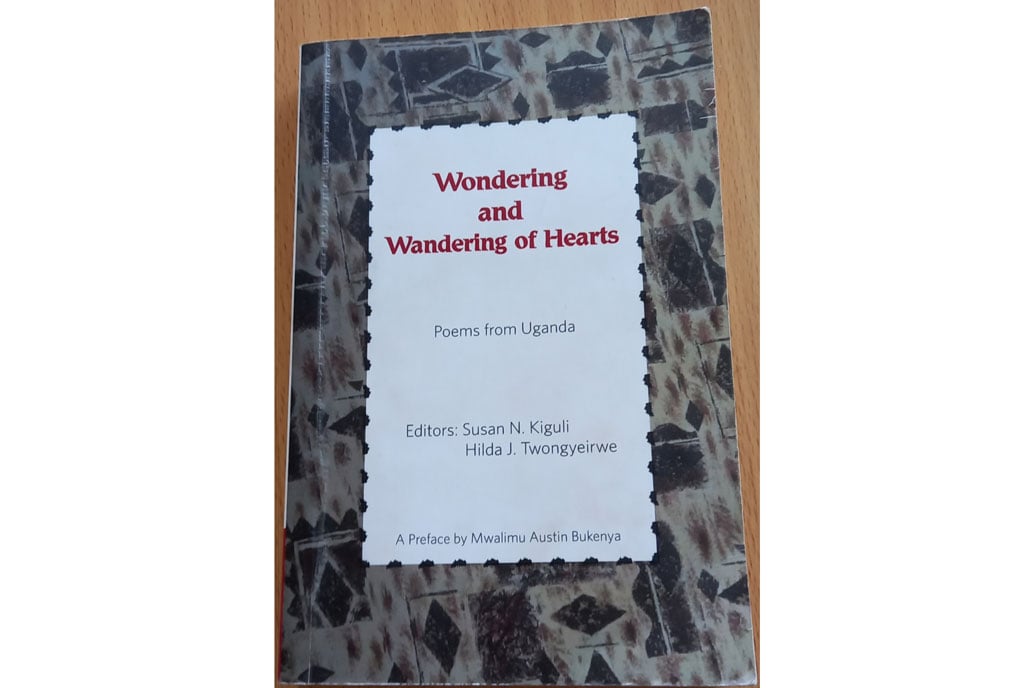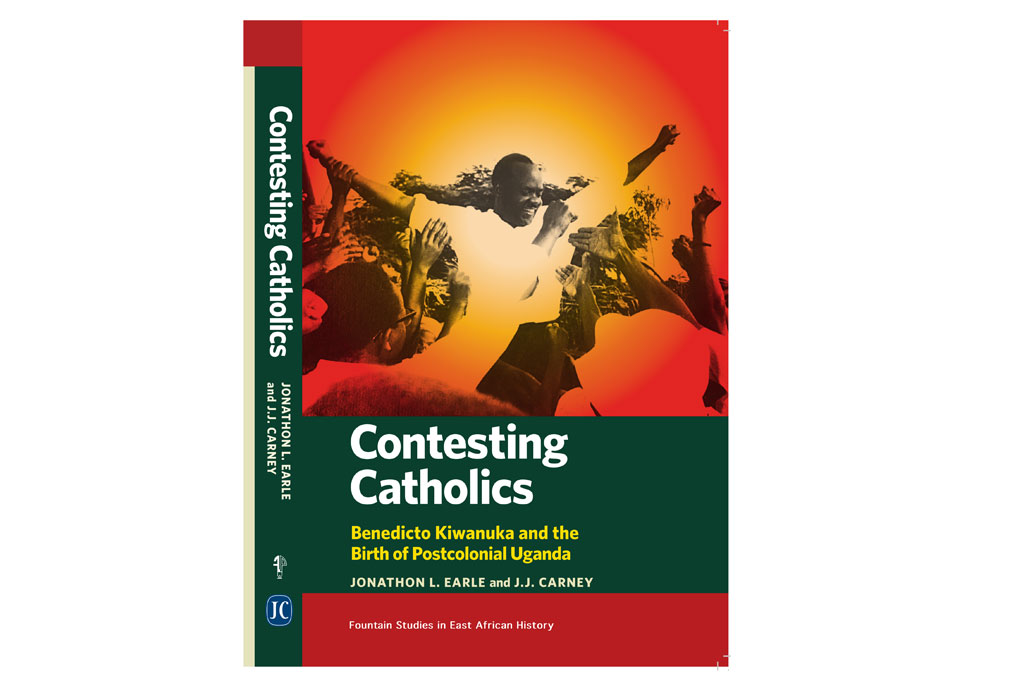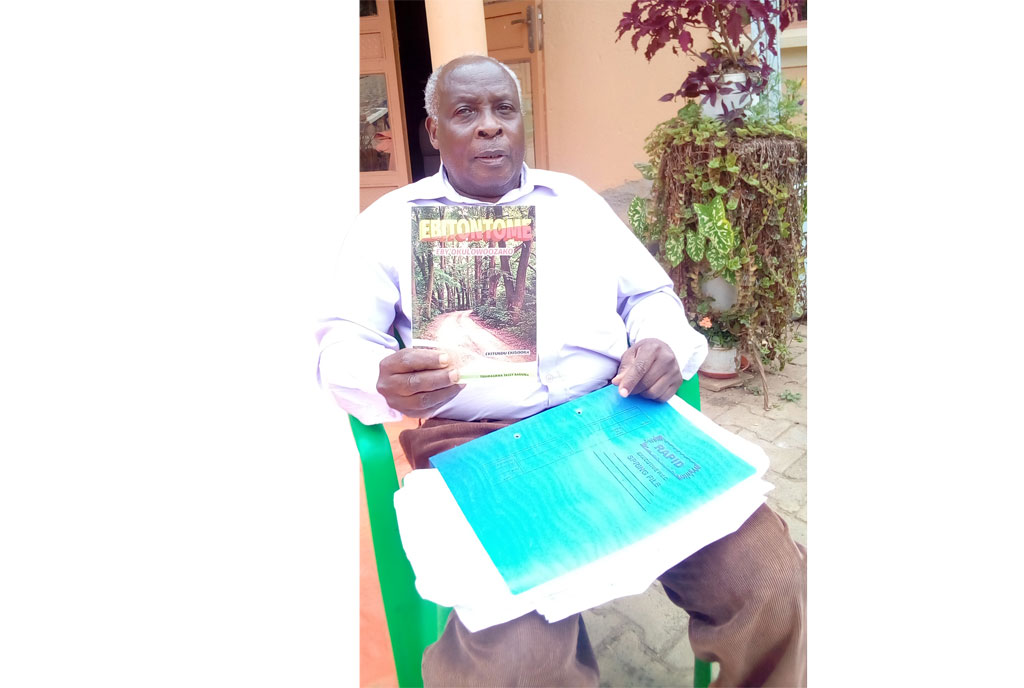Prime
Collective Ugandan poetry on life

The book cover. PHOTO/FILE
What you need to know:
- Topical. Wondering and Wandering of Hearts is a poetry anthology which tackles different relatable topics on life and Uganda, writes Bamuturaki Musinguzi.
Ninety-eight Ugandan poets explore with passion diverse themes from modern slavery, democracy and poor governance in Africa, greed and corruption, to incent, peace and hope in Acholiland after suffering the 20-year Lord’s Resistance Army war in northern Uganda, in the poetry anthology “Wondering and Wandering of Hearts.”
The anthology that offers a feast and face of poetry as it currently is in the country was was edited by Susan N. Kiguli and Hilda J. Twongyeirwe and published by Femrite in 2017. The 255-page anthology contains 184 poems also includes notes on the contributors.
“You Dare Not” by Danson S. Kahyana is about the dangerous times in Kampala. You dare not walk on the pavement in the city because the bodaboda men will invade you and fly-walk you to the orthopedics.
Although the zebra-crossing gives you the right of way – numerous people have perished there, and the state has not cared a bit. You dare not go to government hospitals for the medics will send you to private pharmacies, for its ages since public hospitals had medicine.
In Ernest Katwesigye Tashobya’s poem “The Promised Land.” The country was in bondage of despotism, and the Prophet came with his promise to lead the nation to the Promised Land, flowing with milk and honey.
A potentially three-day’s journey has turned into a 30-years’ trek and counting. The citizens have moved in circles through the wilderness. Fatigued the citizens are still waiting to reach the Promised Land and hanging on unfulfilled promises. The prophet is aging fast, and losing vision of the Promised Land.
Of pastors’ exploits
Uganda is awash with stories of pastors who enrich themselves off their poor flock. Jane P’Bitek Langoya Okot’s poem “Man of God” is about a pastor who reminds his flock that ‘happy are the poor for they shall find riches in heaven.’ And the congregation gives its all in anticipation.
The man of God enriches himself on earth. His monstrous fuel-guzzling machine is shamelessly parked beside the papyrus reed church. And he lives in scandalous palaces and mansions while the flock that he feeds off is up to their knees in squalor.
James Turyatemba’s poem “Wake Up Africa” is a call to the continent to wake up from its deep slumber and adequately plan for its development in this prime millennium. “…Are you pathetically insane/Or slightly demented/Why court poverty/By borrowing today/To pay yesterday’s debts?” it runs in part.
“Are repressive wars/And wanton genocide/A form of family planning? /Should dictators overthrow dictators/To entrench systematic dictatorships? ...,” the poem continues.
While “Life is a Gift” by Subira Yamumpa is about the importance of being alive and taking comfort in what we have and stop craving more. “…Before you complain about your children/Think of someone who is barren/Before you complain about your nagging partner/Think of someone crying out to god for a companion…,” the poem runs in part.
And, “Foetal Position” by James Ogoola tells the tortuous life of a young girl, who was raped at the age of 10 by her father, trapped and trafficked into the human traffic lanes, and forced into sex slavery.
Vicky Achro’s poem “Peace” is an urgent call for peace. The village has risen and it is looking for peace who is expected to be lost in the bushy neighbourhood.
“Tame My Tears” by Harriet Anena is a lamentation for the 16 mothers who die daily in child birth, the shoeless pupils in Mpigi, and for donor aid that grew legs and fled the country’s treasury.
In her poem “Why must I pay tax?” Jackie Asiimwe questions the rationale of paying taxes when all she sees is – garbage overflowing, potholes growing, teachers yawning,children not learning, doctors frowning, nurses striking, districts multiplying, services dying, State House budget rising, while the shilling is falling.
“The Honourable Weevil” by Samuel Kamugisha is about the disturbing trend where politicians have turned burial ceremonies into political campaign platforms. After mourning the politicians will ask the mourners to remember them in the next election.
Violet Barungi’s “The Inescapable” is a reminder of what to expect when we grow older. While accepting that growing old is a natural order of things she among others, strongly objects to all aches taking refuge in every nook and cranny of her beleaguered body. She also resents the fact that her once torch-like eyes surreptitiously grow dim denying her the pleasure to get from reading books.
The dangers facing the habitant of Uganda’s national bird, the Crested Crane is captured in Solomon Manzi’s poem “Recresting the Crane.” The place, the wide-winged and long-legged crane, once came from is cold as ice and no more warm. The birds have left behind music-less darkness.
The crane floats motherless, upon the marshy stream. Who shall recrest our crane? Who shall recover her nest, and hatch her fragile, speckled eggs?
The collection aims at...
Twongyeirwe says, “The collection celebrates not only the poets in it but the collective Ugandan soul as reflected through the pages – from the prized poets who need no introduction to younger poets with unrivalled talent and to a new generation of aspiring writers who Femrite has nurtured through creative writing clubs in secondary schools…”
“The authors featured live up to the billing by covering a stunning variety of human experience, aspiration and reflection. Love does feature, as it should, but what we have mostly here is not the cheap sentimentality of the two-cent pop rap,” Twongyeirwe says.
“Rather, the poets explore the niches and nuances of relationships from a startling variety of angles, desire, search, pain, joy, loss and salvation. Indeed, what you might at first sight take for a straight “love poem” ends up opening into a whole new world of historical, political or spiritual contemplation. Social issues are often tackled head-on, the ports searching and scorching in their satire and sarcasm or in the bluntness of their criticism,” Twongyeirwe adds.





